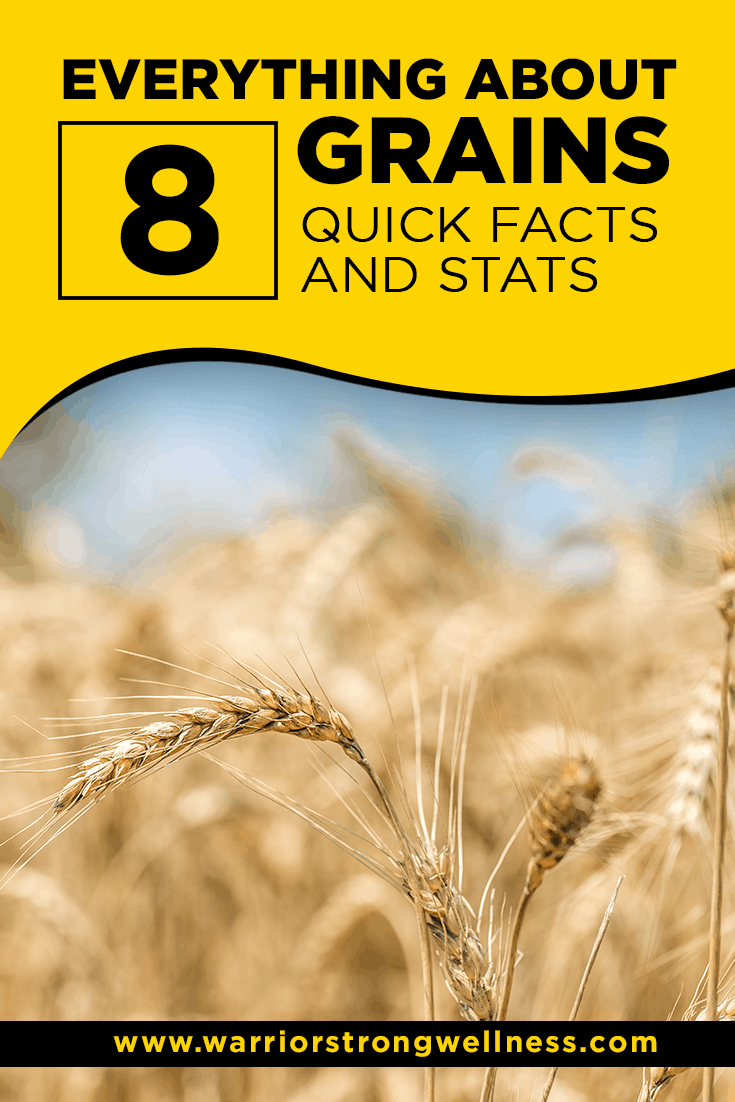Want to know about grains? Learn more about it here, plus the Organic Superfood Greens Powder, an alternative for gluten-sensitive individuals.
It’s no secret that plenty of people still debate whether to include grains in one’s diet. Some say grains are terrible for your health. Others insist that it would be a shame not to have them daily. With the confusing arguments here and there, it’s quite understandable if you feel stuck and unsure whether to eat grains still or choose to rely on products like Organic Superfood Greens Powder to get the nutrition you need. To help clear things up for you, we’ve gathered the top 8 facts and stats on grains. Hopefully, by the end of the discussion, you can figure out if grains should stay in your diet or not.
#1. Grains have been around since the ancient times
A quick trip down memory lane would reveal to you that grains like barley, millet, wheat, and rice have been a considerable part of ancient history. In fact, a study reports that these domesticated grains spread across various regions in the world between 7000 to 3500 years ago.
Fast forward to the modern-day period, grains remain one of the most commonly consumed food products worldwide. From your favorite pasta dishes down to your overnight oats, grains, and grain-derived products, make a healthy and satisfying addition to your everyday meals.
#2. There are so many types of grains you can choose from
Generally, grains come in two classifications, namely whole grains and refined grains. As the word suggests, whole grain refers to grains that only went through minimal processing. This means that their nutrient-rich components such as the bran, endosperm, and germ are still intact. Some famous examples include barley, buckwheat, corn, rye, brown rice, millet, quinoa, and oats.
Then, you have the refined type, which no longer has the bran and germ. You might recognize this type of grain when you buy white rice, common wheat ground into flour, and refined cornmeal.
#3. Grains are incredibly nutritious
Grains contain plenty of nutrients like B vitamins, magnesium, copper, zinc, and tons of dietary fiber. Also, each kind of grain offers something different to the plate. For example, millet contains iron and potassium, amaranth packs plenty of amino acids, while quinoa boasts of antioxidants like kaempferol and quercetin.
#4. Grains are good for the colon and diabetes prevention
Did you know that last year, around 147,950 individuals got diagnosed with colorectal cancer? Unfortunately, besides affecting aging individuals, colorectal cancer now impacts the younger population as well. While this disease's exact cause remains, doctors warn about specific risk factors such as diet and gut health.
Good thing, supplements like Organic Superfood Greens Powder and whole grains show promising potential in maintaining a healthy gut. Studies explain that eating enough grains like unprocessed rolled oats and whole wheat is beneficial to your gut microbiota.
Whole grains also play an active role in increasing your gut’s insulin sensitivity. In effect, your body gets to fully maximize blood glucose and decrease your chances of developing diseases such as diabetes.
#5. Grains consumption may help prevent cardiovascular diseases
Heart issues like stroke, hypertension, heart attack, and coronary heart disease continue to cause high mortality in the country. Fortunately, a meta-analysis of 45 studies explains that there’s a glimmer of hope for people at risk of developing cardiovascular diseases.
According to its findings, increased whole grain consumption may come in handy in reducing risks for cardiovascular diseases. This may be due to the grains' innate ability to lower blood cholesterol circulating in the body.
#6. Eating refined grains will only make you hungrier
Refined grains such as all-purpose flour and cornmeal tend to break down faster compared to their non-processed version. As a result, products containing refined grains like cornbread, cakes, pasta, and biscotti don’t take that long to digest in the stomach. Surely enough, you would find yourself rummaging through your pantry to satiate your cravings in less than a few hours. This would increase your chances of becoming obese and developing insulin resistance (leading to diabetes).
#7. Consuming excessive amounts of refined grains poses various health risks
Among the two types of grains, whole grains get more traction in the health community. That’s because they contain disease-fighting ingredients that could help you live a longer and healthier life. Sadly, we can’t say the same good things for refined grains. Besides causing you to crave more food, refined grains can also slow down your metabolism, spike your blood sugar levels, cause inflammation, exacerbate gastrointestinal disorders, and trigger food intolerances.
#8. Some grains can cause trouble for a lot of folks
One of the main reasons why grains have been getting a bad rap for some people is because most of them contain gluten. As it turns out, roughly 6 to 7 percent of the USA population or about 20 million individuals might have gluten sensitivity.
On top of that, celiac disease, a genetic and autoimmune disorder that causes adverse reactions after gluten ingestion, affects about 11 out of 100,000 individuals in the country.
When a person has a gluten sensitivity or intolerance, eating grains and grain-derived products like pasta, cereals, crackers, cakes, sauces, and dips becomes a nightmarish experience. Gluten intolerance or sensitivity can cause a plethora of symptoms, including:
- Headaches
- Nausea
- Vomiting
- Constipation or diarrhea
- Bloating
- Abdominal pain
- Lethargy or fatigue
As a result, there are plenty of people who have sworn off grains and started following a gluten-free diet. Others opted to choose gluten-free grains like rolled oats, brown rice, and quinoa and integrated supplements such as the Organic Superfood Greens Powder into their daily meals.
Choose health above all else!
Now that you have been able to weigh in on eating grains’ pros and cons, what’s your final verdict? Needless to say, whole grains do provide the body with a ton of health benefits, so unless you’re sensitive to gluten, you might want to consider keeping them into your breakfast, lunch, dinner, or even your snacks!
In case you have a gluten-sensitive gut or celiac disease, you might want to try Organic Superfood Greens Powder. It’s a nutrient-packed food supplement that offers a ton of benefits like natural detoxification.
Here are other perks of using the Organic Superfood Greens Powder:
- You get to enjoy a perfect blend of superfoods like goji berries, broccoli, pomegranate, elderberry, parsley, noni, kale, acai, dandelion greens, wild blueberries, beet, alfalfa grass, and spirulina.
- You can fortify your body’s defense system, reduce inflammation and infections, and eliminate disease-causing toxins in your gut.
- Your gut can benefit from its fiber, digestive enzymes, and prebiotic ingredients, allowing you to improve your digestive health and nutrient absorption.
Whether you’re gluten-sensitive or not, the Organic Superfood Greens Powder can come in handy in helping you maintain your wellness and vitality. Order yours today!



